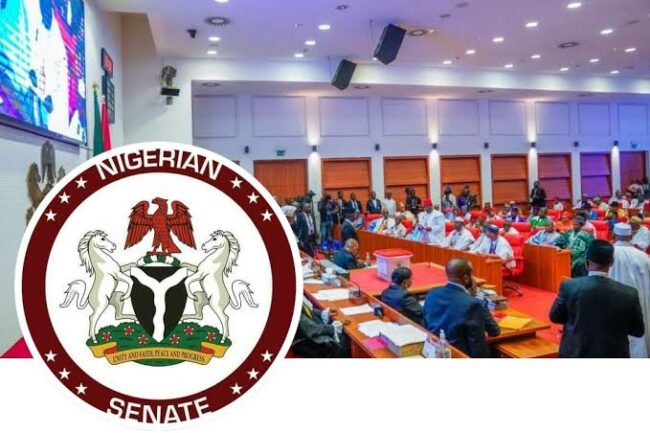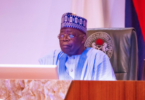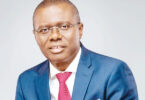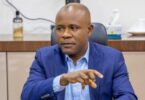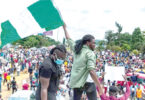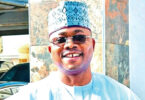Senators at the weekend expressed varied positions over agitation in certain quarters for the return of the return of country to a regional government which was the practice in the First Republic.
Venue was Kano state where the Senate Committee on the Review of the 1999 Constitution held its retreat.
While some Lawmakers argued that a return to regional government would allow federating states harness their resources, others insisted that there was nothing wrong even with the present document but the character of the political class, the operators.
Speaking with journalists, Senator representing Oyo North, Abdulfatai Buhari declared that aside from enabling the nation to harness its resources, effectively, going back to a regional government, if canvassed by Nigerians would go a long way in curbing corruption as he noted that it would make the Central government less attractive.
He said: “If you remember very well, we were able to harness all our resources in the First Republic.
“There was no dominance of a particular resource(s). In those years, the North was known for the pyramid of groundnuts, the south west was known for cocoa, we should be able to do that and then when you make the center less attractive you cut off corruption– you can’t wipe it off, but you can cut it off, because there is what is called, watch your team. People will watch their team within their locality or within their region.”
Senator representing Bauchi Central, Abdul Ningi however dismissed the proposal, as he maintained that his Senatorial district would have nothing to do with a return to regional government.
He said: “I am representing Bauchi Central. I have heard so much about regional government or federalism and I have heard people going about, canvassing for such ideas. For a start, no matter how you see it, the current document is still the grundnorm of the Nigerian Constitution (sic). It has also stipulated how it is going to be amended.
“Having said that, it is also imperative to know that it isn’t just enough for anybody to come and say he is representative of one ethnic group or another. The question that arises is, when was this mandate canvassed? When was it received? You are a representative of a particular ethnic group in Nigeria, at what time were you given mandate to canvass that? The only people that are given this mandate, to look at the Constitution and amend it are, of course, members of the National Assembly. Therefore, it is important for those who go about selling these ideas, false ideas in my opinion, that they are representatives of the people to let Nigerians know where they are coming from and in whose mandate and when was this mandate given to them.
“As for regional government, we have seen how the regional government was operated in the past. My part of the constituency that I am representing didn’t enjoy the development of that so-called regional government that was based in Kaduna. We aren’t going back there again! I am speaking for my senatorial district. It is either Nigerian Federation or nothing.
“As far as regional government, my constituency, my people aren’t for it. What we need is the reform of the Federal government.”
Senate Leader, Michael Opeyemi Bamidele who dwelt extensively on the rigour and processes of amending the Constitution expressed strong reservations about the possibility of discarding the existing Constitution for an entirely fresh document.
He said: “For me, going back to Regional form of governance, is for me something that goes beyond a bill, either as a private bill or an Executive Bill. It isn’t something that you sit down in a Committee hearing room and organize a public hearing to make a decision on. As a parliament, you can’t discard the entire Constitution and say Nigeria needs a new Constitution. It can’t work. It is easy for people to make such argument.
“That’s not what we can sit down in the parliament and do, change the entire Constitution because that will require a political consensus and that will also require the buy-in of the Nigerian people themselves. Why is it so difficult to amend even one section of the Constitution, not to even talk about discarding the entire Constitution itself?
“To amend a single proviso in the Constitution today, the National Assembly, both chambers will have to go through this whole process we are going through with both chambers accepting and many of you have been part of this process and after all these are done we still have to go to the public to organize hearing. We just decided now that we are going to organize a public hearing on geopolitical zonal level. When we are also done with all of these at the zonal level, we come back here to vote. After voting, we still have to go through all the 36 states of the state assemblies and get two-thirds of them to endorse.
“The reasons our forefathers and the writers of our Constitution did all of that is to make it “difficult”— not difficult, but not easy for a few people to just sit down, or one section of the country to just sit down and change the Constitution.
“So if we are to go through all of that, you know, to change one provision of our constitution, how much more? You know, if we are talking about changing, I mean, the type of governance that we are going to have.
“Some decisions were taken, you know, under the military regime, because there was no democratic process in place. And when you are in a democracy, especially a democracy that remains so nascent, you know, almost 64 years after independence, you see that the need for political consensus cannot be overemphasised. So, for me, the question of whether or not to go back to regional democracy, for now, can only remain within the realm of debate, you know, and no legislative action should be encouraged in that regard so that it doesn’t become an exercise of utility.
“But, you know, the political stakeholders, and, you know, the civil society, as well as other stakeholders, you know, in the country, would have to still debate this and come to a conclusion.”
Senator representing Katsina South, Senator Muntari Dandtuse said what is important is good governance.
He said: “We should do away with myopic thinking. If we are talking about the resources of this country, there is no section that isn’t blessed. What is important is good governance: a credible and responsible use of the resources we have because Nigeria is blessed. We have all the comparative advantage that will move this country forward. Unless of course, we are serious and determined this is the time that we can move this country forward.”
Senator representing Niger East, Sani Musa in his own opinion said ultimately, the people of Nigerians be allowed to ventilate their opinions on the form of constitutional democracy they prefer.
He said: “We are practicing constitutional democracy and we are practicing presidential system of government. We aren’t in a parliamentary system of government or regional system of government. But if Nigerians today say we subscribe to doing it, we as parliament, should send it to us and we will consider it. We will hold a public hearing to hear the views of Nigerians. You know there are processes to amend the Constitution. Almost every segment of lawmaking in this country is involved.”
ALSO READ THESE TOP STORIES FROM TheWitness

